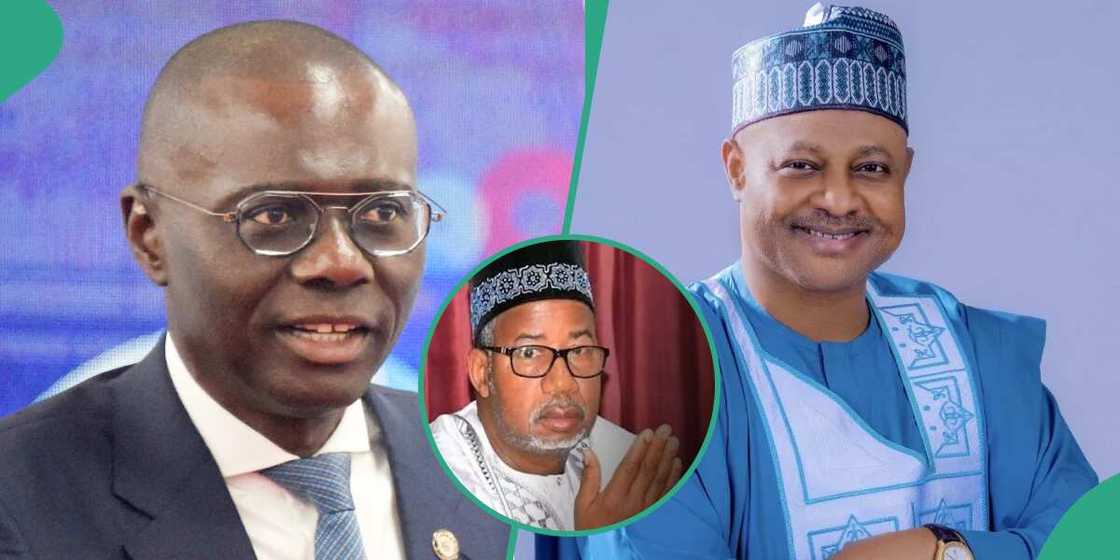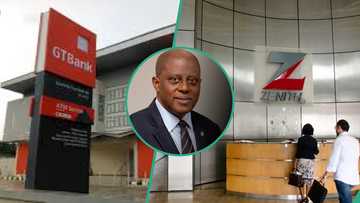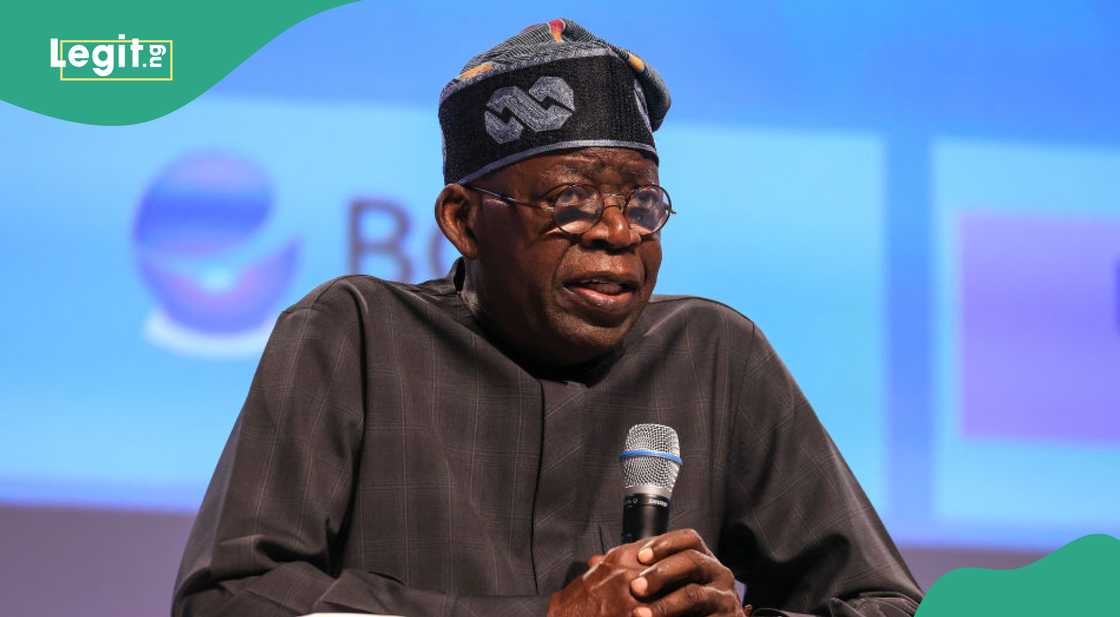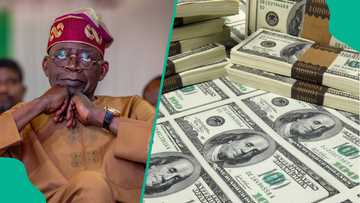Lagos Leads Nigerian States with Highest, Lowest External Debts to China, IMF, Others
- A breakdown of Nigeria’s subnational debt shows the states with the most and least external debts in 2024
- Data from the Debt Management Office shows that Lagos state led the pack as Nigeria’s most indebted
- However, Jigawa emerged as Nigeria’s least indebted state, with a decrease of $25.80 million in 2023 to $23.34 million in 2024
Legit.ng’s Pascal Oparada has reported on tech, energy, stocks, investment and the economy for over a decade.
An analysis of yearly debt movement shows that Nigeria’s commercial debt service payments increased by 23.7% from $1.93 billion in 2023 to $1.47 billion in 2024.
Nigeria’s multilateral debt service experienced a significant decline of 112.4% from $1.23 billion in 2023 to $2.62 billion last year.

Source: Getty Images
Nigeria’s debt service remains stable
The country’s bilateral debt service remained slightly stable, rising marginally from $344.57 million in 2023 to $570.67 million in 2024.
Commercial creditors emerged as the biggest beneficiaries of Nigeria’s external debt service payments, showing the high cost of servicing commercial loans.
According to reports, the external debt profile of the 36 states and the Federal Capital Territory (FCT) dipped to $4.80 billion as of December 31, 2024, from $4.61 billion recorded in 2023, showing a reduction of $0.19 billion or 4.12% per year.
The decline shows efforts by states to manage external debt obligations amid rising global interest rates.
Nigeria’s most indebted states in 2024
Data from the Debt Management Office (DMO) shows that despite reductions in its external debt, Lagos remains the most indebted state in Nigeria.
The state’s debt reduced from $1.24 billion in 2023 to $1.17 billion in 2024, a $0.07 billion or 5.99% reduction.
Punch reports that Lagos accounts for about 24.37% of the total subnational external debt, leading as the most indebted state in Nigeria.
Kaduna follows with an external debt increase from $0.59 billion in 2023 to $0.63 billion, a rise of $0.04 billion or 6.48%.
Edo state emerged as Nigeria’s third most indebted state, with an increase from $0.31 billion in 2023 to $0.38 billion in 2024, an uptick of $0.07 billion or 21.85%.
Nigeria’s least indebted states
However, Jigawa state emerged as the least indebted state, with a decrease of $25.80 million in 2023 to $23.34 million in 2024.
Yobe State also recorded a decrease in its debt stock from $21.49 million to $19.73 million, showing a decline of $1.76 million or 8.19%.
Other states with debt reductions include Enugu, which saw its debt drop from $120.45 million to $87.05 million.
Akwa Ibom also experienced a decrease in its debt stock from $42.61 million to $35.56 million, a reduction of $7.05 million.
However, Rivers State experienced an uptick in its debt stock, increasing from $80.94 million in 2023 to $199.58 million, a rise of $118.64 million or 146.62%.
FG spends N13.12 trillion on debt servicing
Legit.ng previously reported that the Nigerian government serviced debts with about N13.12 trillion in 2024, representing a 68% increase from N7.8 trillion in 2023.
Data from the Debt Management Office (DMO) shows that debt servicing costs in 2024 exceeded the allocation of N12.3 trillion in 2024.
The Nigerian government earmarked N16 trillion for debt servicing, showing its expectation for continued debt-related expenses.
According to reports, domestic debt service cost for the year under review stood at N5.97 trillion, representing a 14.15% increase from N5.23 trillion in 2023.
The increase is due to higher interest rates and rising domestic borrowing.
Nigeria spent about $4.66 billion on external debt servicing, an increase of 167% from N2.57 trillion recorded in the previous year.
Global interest increases debt service payments
The increase in debt servicing costs is due to increasing global interest rates and the naira depreciation, which made dollar loans more expensive.

Read also
Zenith, UBA, GTCO, 4 other Nigerian banks surpass N4trn profit mark amidst economic challenges
An analysis of the data shows that domestic debt continues to account for a major part of Nigeria’s debt-servicing expenses, despite the increase in external debt servicing.
Nigeria’s debt service last year increased by 36.27% to about N5.97 trillion, relative to N4.38 trillion in 2023.
The increase is about N1.59 trillion, showing the growing debt service burden on Nigeria.

Source: Getty Images
DMO data shows that most of the domestic debt service last year was due to the Federal Government Bond, which accounted for N4.69 trillion, a 78.59% increase.
That represents an increase from N3.66 trillion, showing a rise of N1.03 trillion or 28.2%.
World Bank clarifies $10.50 million funding request
Legit.ng earlier reported that the World Bank had clarified that the planned $10.50 million financing for the Central Bank of Nigeria was a grant and not a loan.
A source at the World Bank reportedly disclosed that the amount came under the Finance for Development Multi-Donor Trust Fund as part of a partnership between the global lender and the CBN.
PAY ATTENTION: Сheck out news that is picked exactly for YOU ➡️ find the “Recommended for you” block on the home page and enjoy!
Source: Legit.ng





